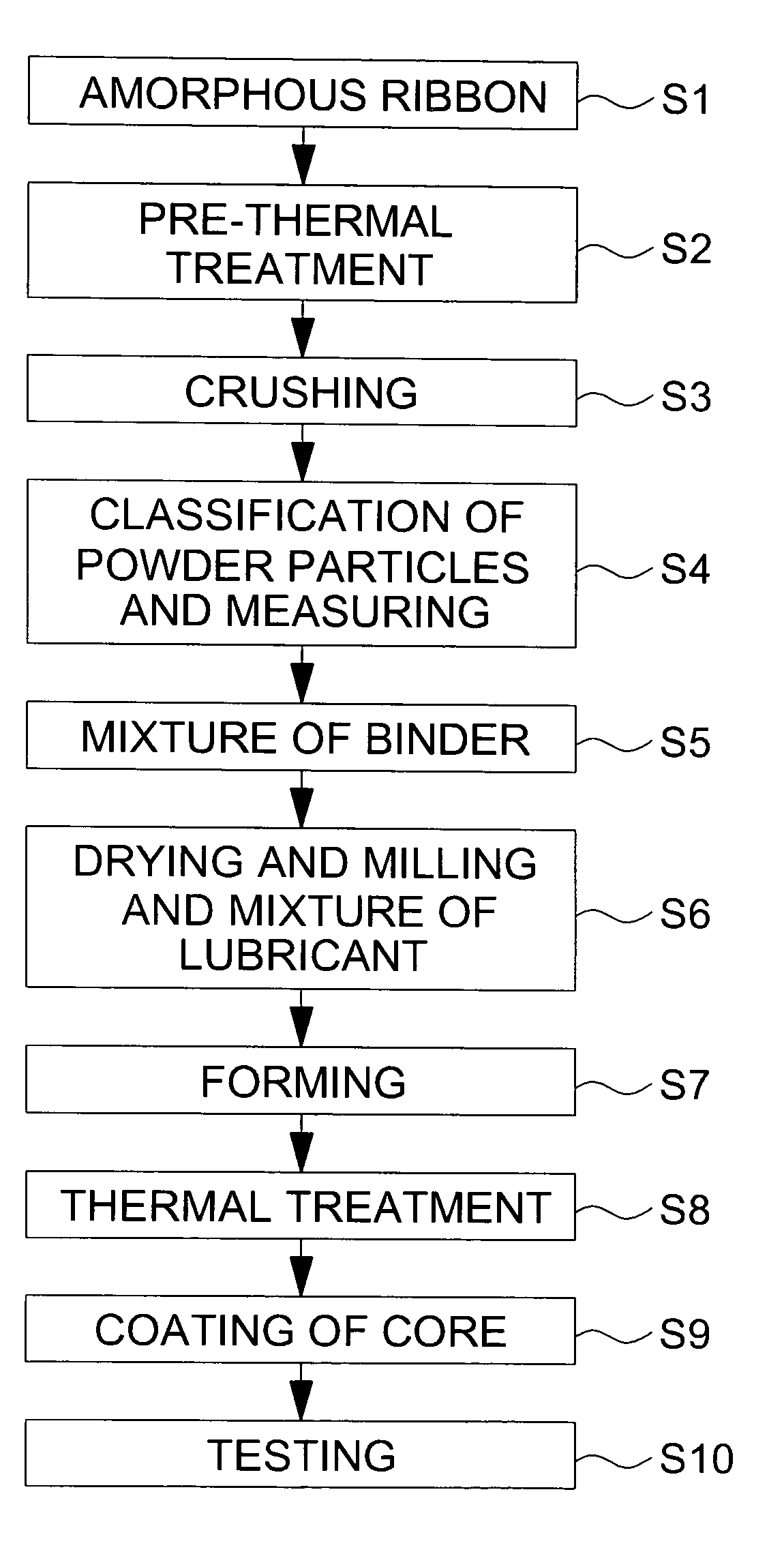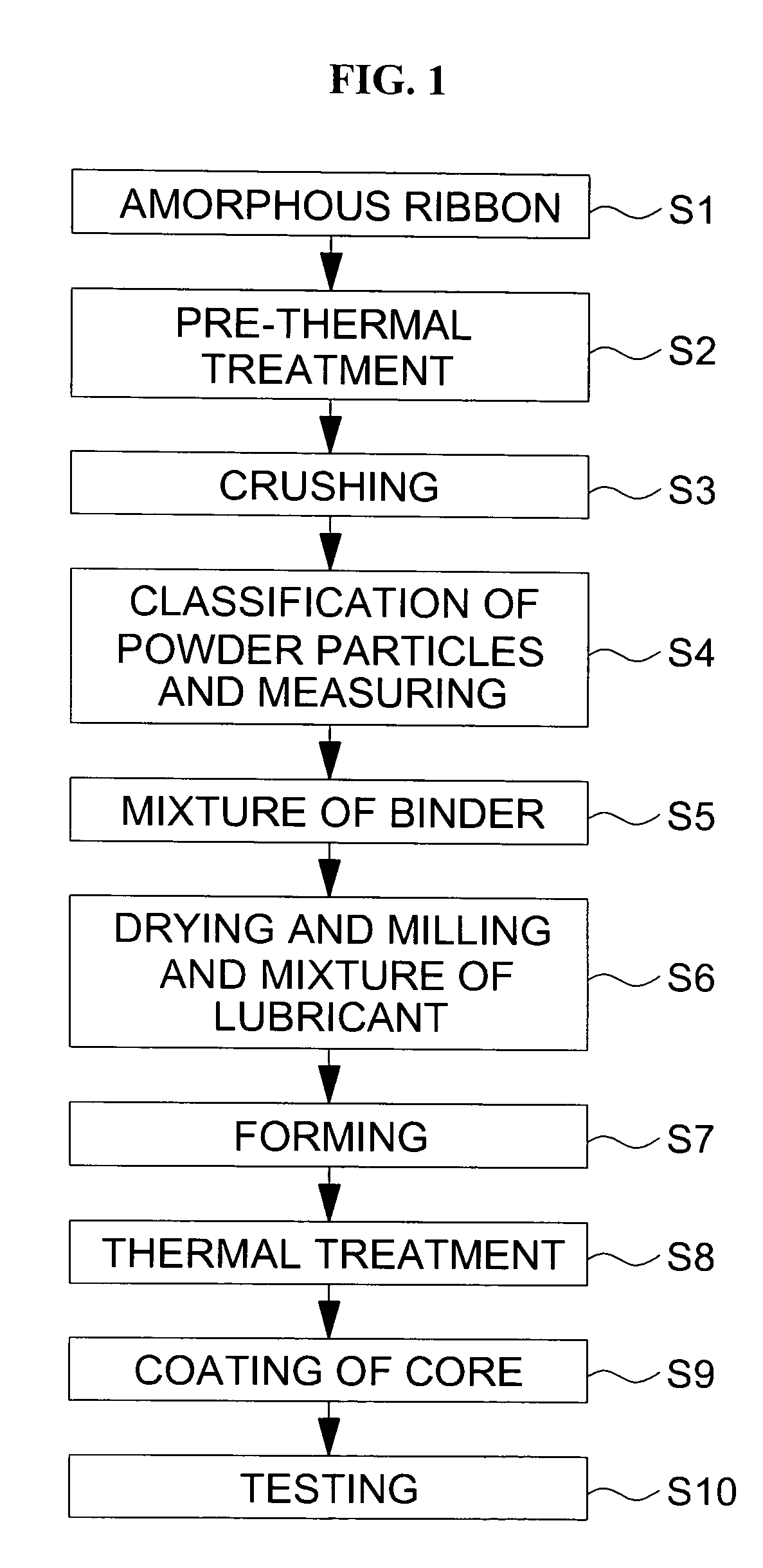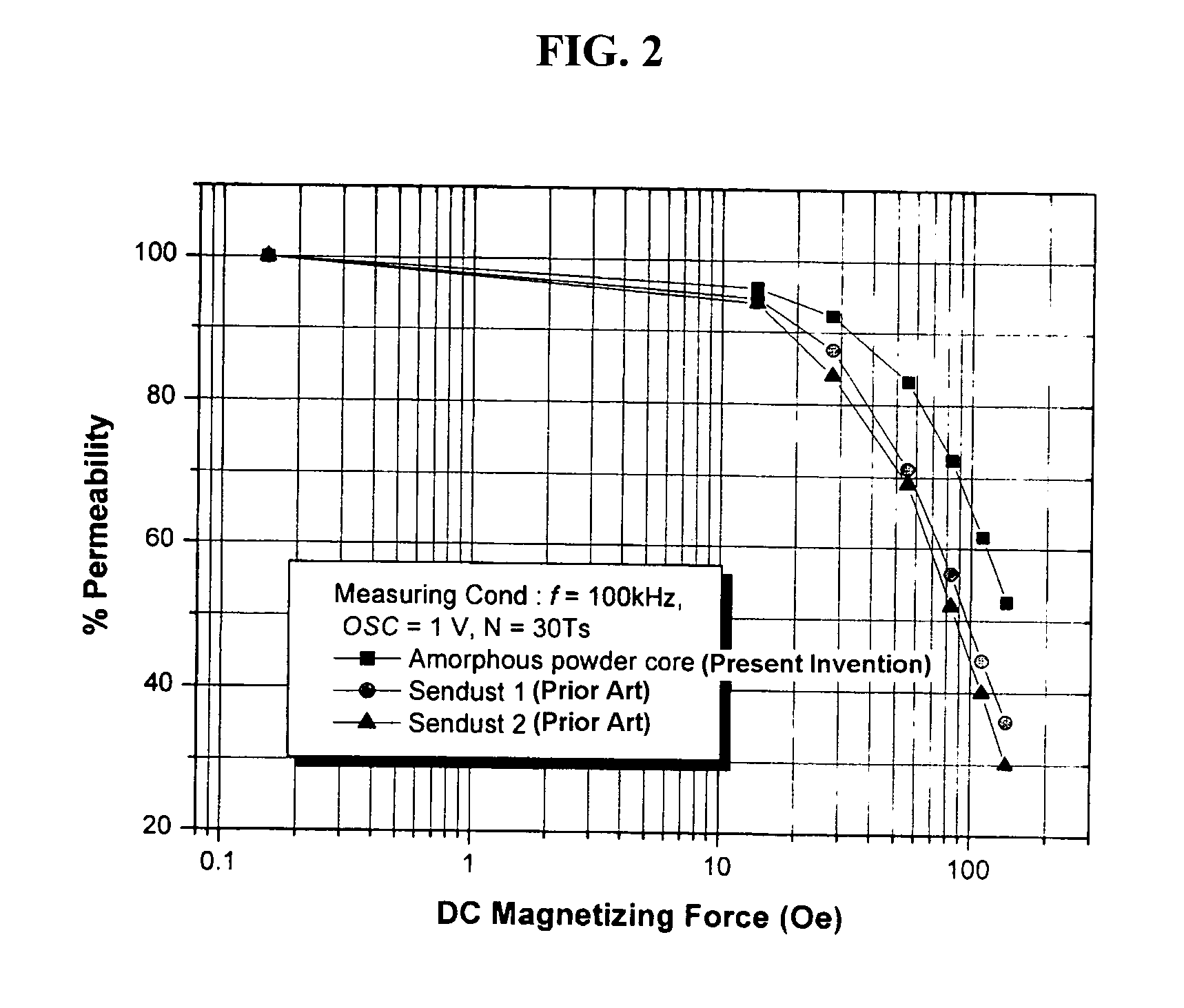Method for making Fe-based amorphous metal powders and method for making soft magnetic core using the same
a soft magnetic core and metal powder technology, applied in the direction of cores/yokes, magnetic bodies, transportation and packaging, etc., can solve the problems of low low magnetic permeability, and large magnetic deformation, so as to reduce processing costs, high saturation magnetic flux density, and high economic
- Summary
- Abstract
- Description
- Claims
- Application Information
AI Technical Summary
Benefits of technology
Problems solved by technology
Method used
Image
Examples
embodiment 1
[0034
[0035]An amorphous ribbon having a composition of Fe78—Si13—B9 produced using a rapid solidification process (RSP), has been thermally treated for one hour at 300° C. under the atmosphere, to thereby obtain a preliminarily thermally treated amorphous metal ribbon. After crushing the amorphous metal ribbon by using a crusher, powder having passed through a sieve of −100˜+140 meshes of 40%, and powder having passed through a sieve of −140˜+200 meshes of 60% have been obtained through a classification of the powder particles.
[0036]Then, the produced amorphous metal powder has been mixed with phenol of 1.5 wt %, to then be dried. After having dried, the powder having been mixed with the phenol of 1.5 wt % has been again crushed by using a ball mill, and then Zn-stearate of 0.5 wt % has been added to and mixed with the crushed powder. Thereafter, the powder having been mixed with the Zn-stearate has been formed with a forming pressure of 24 ton / cm′ by using a core mold, to thereby p...
embodiment 2
[0047
[0048]An amorphous ribbon has been produced in the same manner as that of EMBODIMENT 1. Powder having passed through a sieve of −100˜+140 meshes of 70%, and powder having passed through a sieve of −140˜+200 meshes of 30% have been used as powder particles of the amorphous metal powder. When a core has been formed through an extruding former, cracks have occurred on the surface of the core, after having formed the core. Thus, the core has been broken after having treated the core thermally.
[0049]If powder having passed through a sieve of −100˜+140 meshes of 45% or more is used, it can be seen, from the experiments changing a distribution of powder particles of the metal powder, that cracks occur during forming and a core of a desired characteristic cannot be obtained.
embodiment 3
[0050
[0051]An amorphous ribbon has been produced in the same manner as that of EMBODIMENT 1. Powder having passed through a sieve of −100˜+140 meshes of 10%, and powder having passed through a sieve of −140˜+200 meshes of 90% have been used as powder particles of the amorphous metal powder. When a magnetic feature is estimated after coating, a magnetic permeability was 45, which was lower by 20% than that of the core of EMBODIMENT 1 using powder having passed through a sieve of −100˜+140 meshes of 40%, and powder having passed through a sieve of −140˜+200 meshes of 60%.
[0052]If powder having passed through a sieve of −100˜+140 meshes of 35% or less is used, it can be seen, from the experiments changing a distribution of powder particles of the metal powder, that a desired magnetic permeability cannot be obtained.
PUM
| Property | Measurement | Unit |
|---|---|---|
| temperature | aaaaa | aaaaa |
| switching frequency | aaaaa | aaaaa |
| switching frequency | aaaaa | aaaaa |
Abstract
Description
Claims
Application Information
 Login to View More
Login to View More - R&D
- Intellectual Property
- Life Sciences
- Materials
- Tech Scout
- Unparalleled Data Quality
- Higher Quality Content
- 60% Fewer Hallucinations
Browse by: Latest US Patents, China's latest patents, Technical Efficacy Thesaurus, Application Domain, Technology Topic, Popular Technical Reports.
© 2025 PatSnap. All rights reserved.Legal|Privacy policy|Modern Slavery Act Transparency Statement|Sitemap|About US| Contact US: help@patsnap.com



